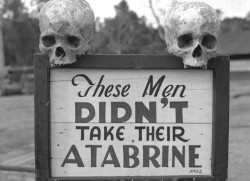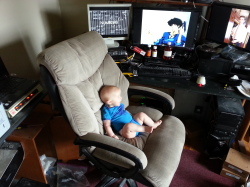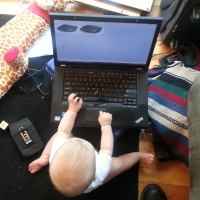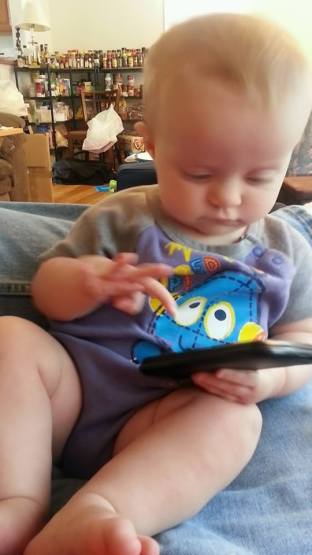Monthly Archives: November 2014
 New Yorker’s Maria Konnikova investigates the anti-Republican bias in social psychology. Where it comes from, how it occurs, and what can be done about it. A first-hand account from Jose Duarte.
New Yorker’s Maria Konnikova investigates the anti-Republican bias in social psychology. Where it comes from, how it occurs, and what can be done about it. A first-hand account from Jose Duarte.
In some parts of the country, it is apparently “hard to get by” on $300,000 per year.
Is Louisiana boot-shaped anymore?
Portland (OR) is nearing approval for tiny houses for homeless people.
A reunited Germany, 25 years after The Wall fell. Interestingly, the former East Germany has the highest rates of unemployment and vaccinations. They also lack for young people.
Here’s the account of the border guard that helped make the fall of the Berlin Wall happen and of the victims who tried to escape before it happened.
I sometimes have the suspicion that people who want greater density have in mind walking across their lawn, across other peoples’ apartments, to the store. This doesn’t really contradict that suspicion.
If chiropractors really want to be considered medical practitioners, they’d do better not inviting Andrew Wakefield to speak at their conference.
Lanhee Chen looks at what appears to be strong progress between the GOP and Asian-Americans.
Like yours truly, Sonny Bunch was disenfranchised by the system and it’s requirement that you “register” to “vote.”
Inland California used to be red. No more!
Allegedly, as election day approached, both sides saw the GOP wave coming when they saw a persistent passion disparity and late-breakers breaking towards the GOP.
ESPN has a neat feature on college football walk-ons.
Back in the day, Web was a frequently critic of the Innocence Project on the basis that they make the system look worse than it is. I never bought in to that argument, but recent revelations are quite disturbing:
The investigation by the Innocence Project, she said, “involved a series of alarming tactics that were not only coercive and absolutely unacceptable by law enforcement standards, they were potentially in violation of Mr. Simon’s constitutionally protected rights.”
The truth took 15 years to come out. That’s 15 years that Simon, now 64, spent behind bars.
“Believe me, it is mentally painful to walk around every day, locked up for something that you know you didn’t do,” Simon told Shawn Rech, whose film about the case, “A Murder in the Park” now has an ending. It premieres at a film festival in New York on Nov. 17.
Simon, who moved to Milwaukee from Chicago in the 1980s to find work, is not granting interviews, his attorney, Terry Ekl, told me. But Ekl echoed Alvarez’s criticism of former Northwestern journalism professor David Protess, who led the Innocence Project, and the investigator on the team, Paul Ciolino.
“In my opinion, Northwestern, Protess and Ciolino framed Simon so that they could secure the release of (Anthony) Porter and make him into the poster boy for the anti-death penalty movement,” he said.
Identified by several eye witnesses, Porter was sentenced to death for the fatal shooting of Jerry Hillard and Marilyn Green at a south side Chicago park in 1982. He was just two days from a lethal chemical injection when he was freed in February 1999 following Simon’s confession.
I really hope this isn’t as bad as it looks, because it looks pretty bad.
 The University of Tokyo has created a bipod robot that “runs” at 2.6 miles per hour. Meanwhile, MIT has a 70-pound robot that runs sixty miles an hour.
The University of Tokyo has created a bipod robot that “runs” at 2.6 miles per hour. Meanwhile, MIT has a 70-pound robot that runs sixty miles an hour.
The southern California coast may be expensive, but the weather really is better there.
Russia: Depopulation by low birth rates and high death ones. Or not.
Good news! Time travel simulation has resolved the Grandfather Paradox. I barely understand a word of this article, but some of y’all are smarter than me.
SimCity and the technocracy.
Conor Friedersdorf argues that urban farming is exacerbating San Francisco’s housing crisis.
The latest research is coming down against bilateral mastectomies. Aaron Carroll doesn’t expect that to change our approach much.
Finally, our place on the map of the universe actually has a map has a name!
What is to become of higher education? David Bromwich looks at right-wing complaints, left-wing complaints, rising costs, and technology.
Living away from home is a part of “the college experience” but it, too, is becoming less affordable. In a way that’s hard to blame on student loans or state subsidy.
A woman in Nashville fights a legal battle against charges that she neglected a child that she didn’t know.
We talk about how college pays, but does it?
A friend of mine made the decision to block me from his feed on Facebook, due (I mostly assume) to political differences and the conflicts that have arisen because of them. Honestly, I am not bothered by this. Historically, he has been well to my right, though that changed around 2010 when he darted left. For some reason, even though I have plenty of lefty friends, it has made relations considerably more difficult.
Anyway, because I was not unfriended, he still shows up in the feed to the right when he leaves comments on other people’s feeds. You’d think that since he doesn’t want me reading what he has to say on his feed, Facebook, that they’d get a clue that it’s probably best that he doesn’t show up there either and that we should remain Friends In Name Only or somesuch.
It’s part-and-parcel to Facebook’s weird inability to determine what should be on my feed. You’d think that the algorithm would say “Hey, he’s commented on this guys’ statuses repeatedly, so this is probably someone whose feed he’s interested in.” But not really. It thinks I really need to know what’s going on with a high school acquaintance who now lives in Connecticut, but not the person who has tagged me in posts twice in the last month.
This is one of the reasons I get less paranoid about their collecting information on me. They seem to be utterly incompetent on what to do with even the obvious parts.
(That said, I started to get ads for state government political races ragging on the DMV. That’s kind of… suspicious.)
I had a rough night last night. Or rather, a rough morning. There is only one part of the bedroom where the sun gets directly into the room. Guess whether or not that place was right where I was sleeping? Further, the baby was co-sleeping, making movement more difficult. The biggest problem, though, was the pillows.
We’d been riding too long on our old pillows, and I saw these nice and fluffy ones for cheap at Walmart. Well, you get what you pay for when it comes to pillows. They’re just dreadful, and I am a very pillow-dependent sleeper. I’m going to find the old pancake pillows and double-stack them until I can get some good pillows.
Instead of just ragging on Walmart, though, let me share a secret with you: They make some of the best salsa out there. Ordinarily, I go with Mrs. Renfro’s, which I hardily recommend if you like spicy salsa. In particular, their Green Salsa is quite good and easy to find. Their Hot Salsa and Habanero are also good, though the latter borders on being too hot (and I like it hot). the Ghost Pepper variety is too hot by any standard.
But if you like a milder, more flavorful salsa, it doesn’t get much better than World Table, one of Walmart’s house brands. In particular, their Roasted Salsa Verde and Roasted Tomato Chipotle salsas are exceptionally good. Not just for house brand salsa, or Walmart salsa, but compared to just about any bottled salsa out there.
France is beseiged by evil clowns, giving rise to anti-clown vigilantes.
In the UK there is a push for doctors and nurses to start working (more) on weekends.
In order to smooth relations with the Uighurs (an ethnic minority group covering the northwest), China is offering money for ethnic-majority Chinese to marry them.
Most of us didn’t know that we had Ebola drugs waiting in the wings the next time there was an outbreak. Turns out, we may have Dick Cheney to thank for that.
Utah is one of the most conservative states in the country. But between its homeless policies and now its approach to police militarization, it is marches to the tune of its own trumpet.
In the US, there is this thing called “academic red-shirting” where we try to hold our kids back from entering school so that they’ll be among the oldest (and best-performing) in their class. In China, they have their kids early so that they go to school earlier.
ForeignPolicy looks at the Honduran charter cities.
Legalized gambling has been a bane to lower-income Americans, but perhaps it can be used for good and not evil, to entice them to save.
Ewan Morrison argues that late young adult dystopic fiction promotes right-wing libertarianism to young people.
Salon says smart people aren’t any less racist than other people, they’re just better at hiding it. What Salon means is “smart people aren’t more likely to support our preferred set of policies to combat racism.
Many argue that the consolidation of health care services may lead to better care. Aaron Carroll points to a study suggesting this isn’t true.
James Joyner and Allison Slater Tate write about parenting as a Generation X’er, mostly in the context of being the last generation raised in the pre-Internet era:
It struck me recently, after one of my quiet carpool rides, that my generation of parents – we of the soon-to-be or recently 40 year old Gen X variety, the former latchkey children of the Cold War and an MTV that actually played videos, former Atari-owners who were raised by the the Cosby Show and John Hughes, graduated high school with the kids from 90210, then lumbered through our 20s with Rachel, Ross, Chandler, Monica, Phoebe, and Joey and flip phones – is perhaps the last to straddle a life experience both with and without the Internet and all its social media marvels. After all, I didn’t even learn to use e-mail until I was 19 and a sophomore in college in 1993, and only for a slightly cringe-worthy reason: a cute boy at another college asked me to e-mail him.
My generation, it seems, had the last of the truly low-tech childhoods, and now we are among the first of the truly high-tech parents.
 My formative years were truly right on the cusp of the Internet age, falling just before it. I didn’t have reliable, worthwhile Internet access until I got to Southern Tech. I did have BBSes, of course, which mattered a great deal at the time as I got to experience some of the social aspect of the Internet.
My formative years were truly right on the cusp of the Internet age, falling just before it. I didn’t have reliable, worthwhile Internet access until I got to Southern Tech. I did have BBSes, of course, which mattered a great deal at the time as I got to experience some of the social aspect of the Internet.
What I didn’t get to experience, though, was everything else. Some of which will actually be kind of hard to convey to Lain and future siblings. Much of the awesomeness of the Internet involves relatively small shifts between things that were already occurring. Before there was online shopping, there was mail order.  And Lain will shop.
And Lain will shop.
The truly big thing that the Internet brought is having a world of fact at our fingertips. It’s possible, and true, to talk about how the Internet has allowed us to live in fact-starved cocoons where the reality of politics, science, and religion is more or less choose-your-own-adventure, but scratch just below that surface and ponder how amazing it is to want to know something and be able to pretty immediately look it up the vast majority of the time. Remember what life was like before that? It was like this:
Argument About Capital Of Australia Occurs 10 Feet From Encyclopedia
ORD, NE— Brothers Jeff and Adam Clink spent 20 minutes fiercely debating the capital of Australia while standing 10 feet from the family’s World Book encyclopedia Monday. “You’re high,” Jeff, 18, told Adam. “It’s Sydney.” Adam, who said he is “99.99 percent sure” that Melbourne is the capital, conceded that one city might be the capital of the Australian continent and the other the capital of the nation.
 It’s not that you couldn’t get the answers to such things. It’s that you rarely did, if it wasn’t particularly important. One of my favorite phrases is “There’s no reason not to know when you’re holding a smartphone” and I will frequently look up points of uncertainty in the middle of group conversations. Or if someone says something that sounds not quite right, I can look it up and correct later.
It’s not that you couldn’t get the answers to such things. It’s that you rarely did, if it wasn’t particularly important. One of my favorite phrases is “There’s no reason not to know when you’re holding a smartphone” and I will frequently look up points of uncertainty in the middle of group conversations. Or if someone says something that sounds not quite right, I can look it up and correct later.
And Lain will, of course, take that almost entirely for granted. And it’ll be hard to explain how it used to be that if someone was bullspitting around, you more or less had to either shrug it off or debate it to a lack of conclusion. Like the capital of Australia was a choose-your-own-adventure political disagreement.
Of course, some of the changes are a bit disconcerting. I’d more or less figured out how we were going to handle kids and TV time. I figured this out before it became apparent that ultimately they’d be watching TV on their phones. Now I’m back to square one, without a clue as to what to do. It used to be a simple matter of not allowing them to have a TV in their bedroom, or a video game console in their bedroom or in the house. Now? Well, it’s hard to make it so that they have a world of information at their fingertips and not the ability to watch their favorite TV show.
And at some point, they won’t even need a device because it’ll be in their contact lens. But that’s a problem Lain will have to deal with if she has children.
